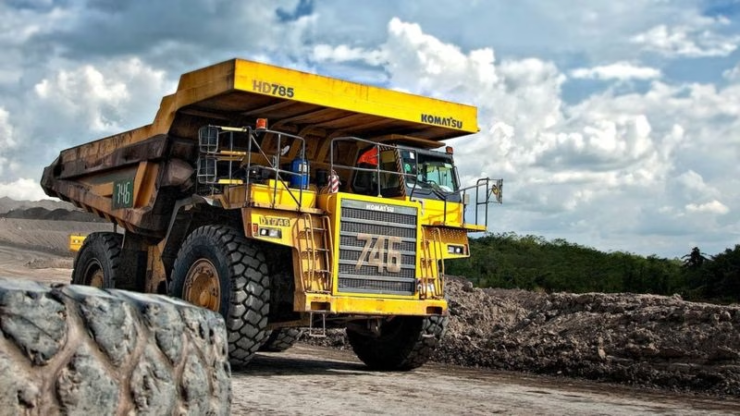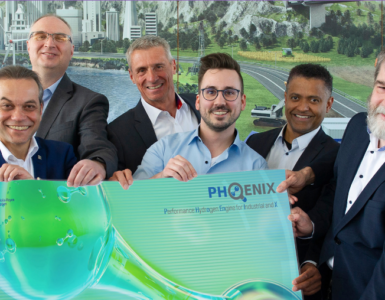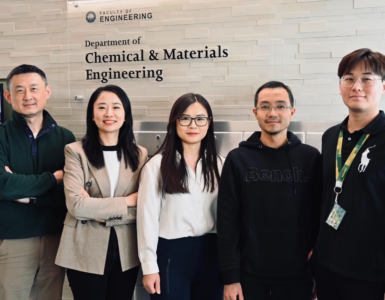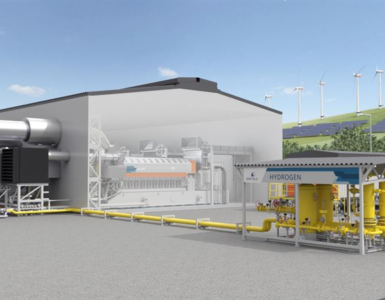The race to make diesel engines run on hydrogen – BBC.
It’s a new hydrogen-diesel hybrid engine affectionately known as “baby number two” that could help to decarbonise some of Australia’s heaviest industries.
The test rig is large – it has its own room adjoining a lab and looks at first glance like many other large motors, but beneath its metallic skin could lie game-changing technology.
Engineers at the University of New South Wales (UNSW) say they have successfully modified a conventional diesel engine to use a mix of hydrogen and a small amount of diesel, claiming their patented technology has cut carbon dioxide (CO2) emissions by more than 85%.
It’s the work of Prof Shawn Kook and his team at the university’s School of Mechanical and Manufacturing Engineering.
Prof Kook tells the BBC at his laboratory in Sydney:
The interest in converting an existing diesel engine into a clean-burning hydrogen engine is extremely high.
Enquiries have come from Germany, South Africa, Brazil, Japan and China.
“We mount the hydrogen direct injection system into existing diesel engines, which can be applied to any conventional engine,” he adds.
What makes their system unique, according to Prof Kook, is the way it mixes the hydrogen and diesel and then introduces it to the engine cylinder for combustion.
Unlike fossil fuels, hydrogen does not produce CO2 when burnt, so it has long been seen as a greener fuel source.
About 90% of fuel in the UNSW hybrid diesel engine is hydrogen but it must be applied in a carefully calibrated way.
If the hydrogen is not introduced into the fuel mix at the right moment “it will create something that is explosive that will burn out the whole system,” Prof Kook explains.
He says that studies have shown that controlling the mixture of hydrogen and air inside the cylinder of the engine can help negate harmful nitrogen oxide emissions, which have been an obstacle to the commercialisation of hydrogen motors.
The Sydney research team believes that any diesel trucks and power equipment in the mining, transportation and agriculture sectors could be retrofitted with the new hybrid system in just a couple of months.
Prof Kook doubts the hybrid would be of much interest in the car industry though, where electric and hybrid vehicles are already advanced and replacing diesel cars.
However, he says Australia’s multibillion-dollar mining industry needs a solution for all its diesel-powered equipment as soon as possible.
“We have so many established diesel-powered generators, mega-trucks and underground machines. How do we decarbonise all those existing diesel engines? One way is to shut down everything and get new technology in, which will take decades,” he says.
The plan is for the hybrid to run off a hydrogen-diesel mix or, in the absence of hydrogen, it can revert to diesel only.
Prof Kook hopes his new generation engine will become a commercial product within two years.
Tim Buckley, the director at Climate Energy Finance, a public interest think-tank in Sydney, believes the technology has the potential to “transform the Australian mining industry dramatically”.
“There’s always an element of scepticism in the work I do to evaluate what is hype and hope as opposed to reality. Having said that, this University of New South Wales breakthrough does appear to be pretty material. If they can pull it off it is a huge opportunity,” he says.
READ the latest news shaping the hydrogen market at Hydrogen Central
The race to make diesel engines run on hydrogen, January 20, 2023









